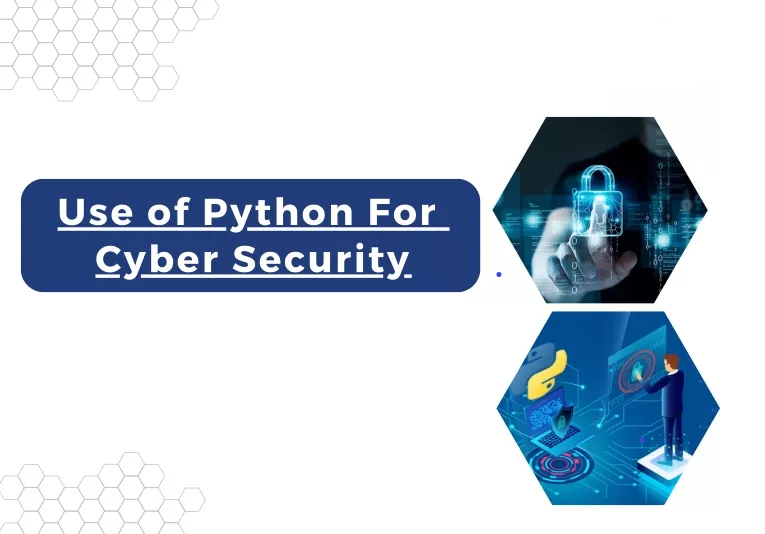How Python experts can help with cybersecurity in 2024 and Beyond
- Shaikh N

- Mar 20, 2024
- 3 min read
Cyberthreats are growing more sophisticated every day. As businesses and organizations become increasingly digital, they also become more vulnerable to cyber attacks that can cripple operations and compromise sensitive data. This growing threat landscape means cybersecurity is more vital than ever before.

Python programmers for cybersecurity, with their versatile skill sets, are well-positioned to help organizations bolster their cyber defenses. Python's accessibility, vast libraries and frameworks make it an ideal language for security applications. As we move into 2024, Python will continue to be a key tool for developers looking to counter emerging threats and security challenges.
Why Python?
Python has exploded in popularity in recent years. Its simple syntax and extensive libraries allow developers to become productive quickly. Python code emphasizes readability, reducing the chances for errors and bugs that can introduce vulnerabilities. These characteristics make Python a great language for writing secure code.
Another key advantage is Python's vibrant community. There are dozens of specialized libraries focused on tasks like cryptography, forensics and network security monitoring. For developers new to cybersecurity, having accessible modules to integrate security capabilities enables them to start safeguarding systems faster.
Python also excels at tasks like data analysis, modeling, and automation. These capabilities are crucial for cybersecurity efforts like identifying anomalies and threats, simulating adversary behavior, or automating repetitive security tasks. Python provides the versatility many security teams need as they adopt more proactive cyber defenses.
Key Areas of Contribution
Python developers have many avenues to help enhance cybersecurity through their code. Here are some of the key areas where they can make an impact:
Secure Coding Practices
Adopting secure coding best practices is a foundation of developing defensible applications and systems. Python developers can bake security into their design process through measures like:
Input validation and sanitization
Implementing authentication and authorization controls
Using cryptography securely when handling sensitive data
Ensuring proper error handling so as not to leak information
Conducting code reviews and using tools like Bandit to spot security issues
By keeping security top of mind from the beginning, Python developers can reduce bugs and flaws that often lead to exploitable vulnerabilities.
Automation & Security Testing
Automating routine security tasks allows organizations to improve efficiency, reduce costs and minimize human errors. Python is ideal for automation thanks to its extensive libraries and simple syntax.
Python developers can write scripts and programs to automate:
Vulnerability scanning of networks and applications
Load and penetration testing to uncover weaknesses
Cloud infrastructure security management through Infrastructure-as-Code
Security monitoring and alerting to quickly detect threats
Python automation for cybersecurity enables continuous assessment of systems and flags risks before attackers can discover and abuse them.
AI & Machine Learning in Security
AI-powered cybersecurity is increasingly seen as a key tool against advanced attacks. Python's reputation for machine learning makes it well-suited for building ML models that can:
Detect network and host anomalies through traffic analysis
Identify malware and suspicious behavior through static and dynamic analysis
Use NLP techniques on threat intelligence to derive actionable insights
Speed up incident response by helping analysts quickly sort through alerts
Python data science libraries like NumPy, Pandas and TensorFlow empower developers to create sophisticated ML capabilities to enhance threat detection and incident response.
The Future Landscape
Looking ahead to 2024 and beyond, Python will continue to evolve as a versatile language for cybersecurity. As threats become more complex and evasive, the need for intelligent automation and data-driven security will grow.
Python is likely to see expanded use in fields like:
Threat intelligence - gathering indicators of compromise from various sources and using ML to determine attack patterns.
Cloud security - protecting complex cloud environments by analyzing configuration data and network activity.
Securing IoT devices - safeguarding the growing number of smart home gadgets and appliances coming online.
Blockchain security - securing cryptocurrency applications and smart contracts through formal verification and vulnerability management.
The versatility Python offers means developers will have ample opportunity to apply their skills to pressing cybersecurity challenges, both current and emerging.
Conclusion
Python for your next project provides the perfect blend of accessibility, power and an active community to tackle the diverse threats that organizations face in the digital sphere. As cyber attacks become more frequent and costly, Python-wielding developers have a key role to play in building, testing and deploying security capabilities.
The stage is set for Python to be a cornerstone for developers looking to thwart cyber risks through better analytics, intelligent automation and resilient systems. Collaborative efforts between security and development teams will be more important than ever going into the 2020s.
There are plenty of resources available for Python programmers looking to enhance their security skills and build expertise in this crucial domain, from online courses to hands-on projects. Developing code more securely and applying Python's capabilities to key security problems will strengthen organizational defenses and lead to new career opportunities.








Comments